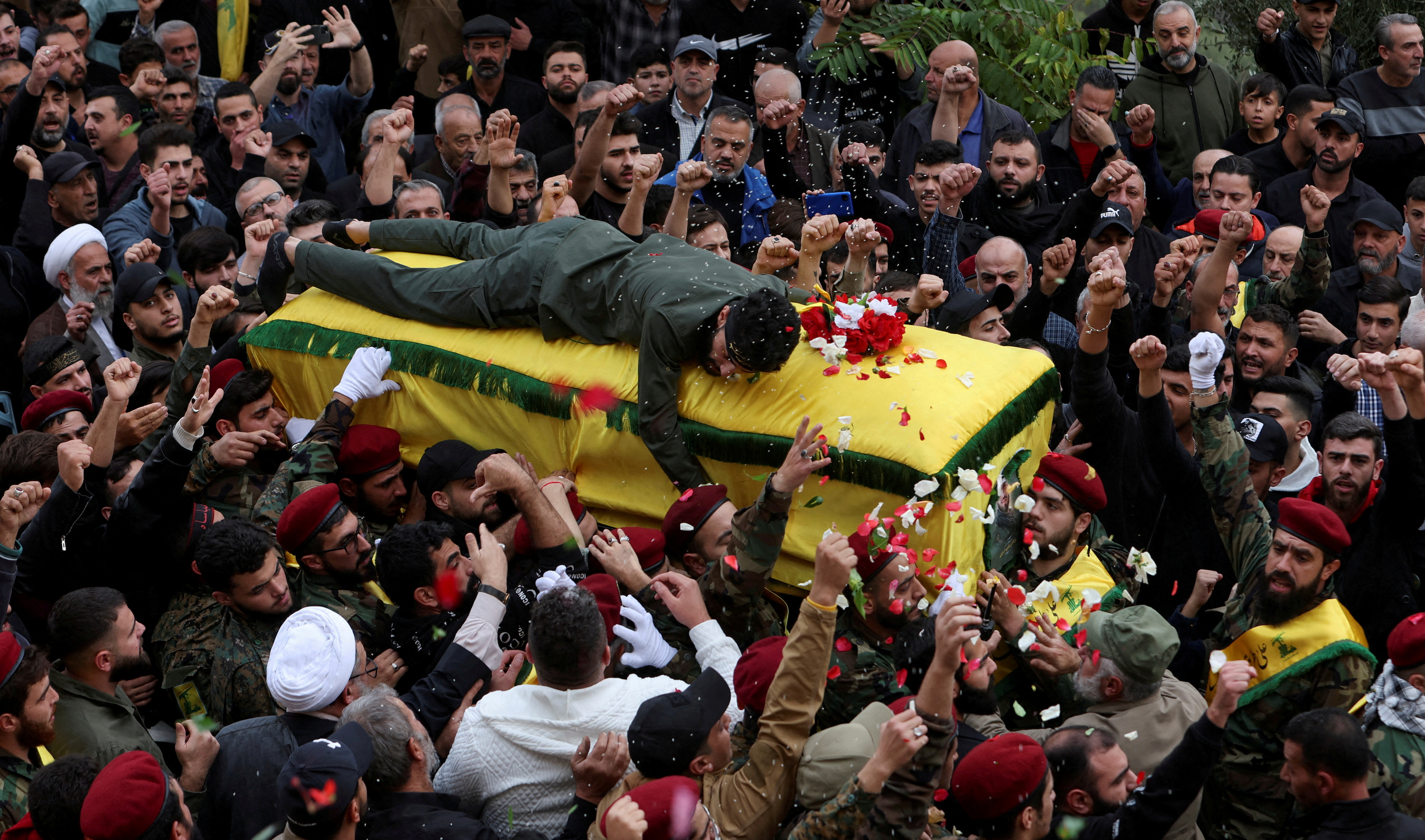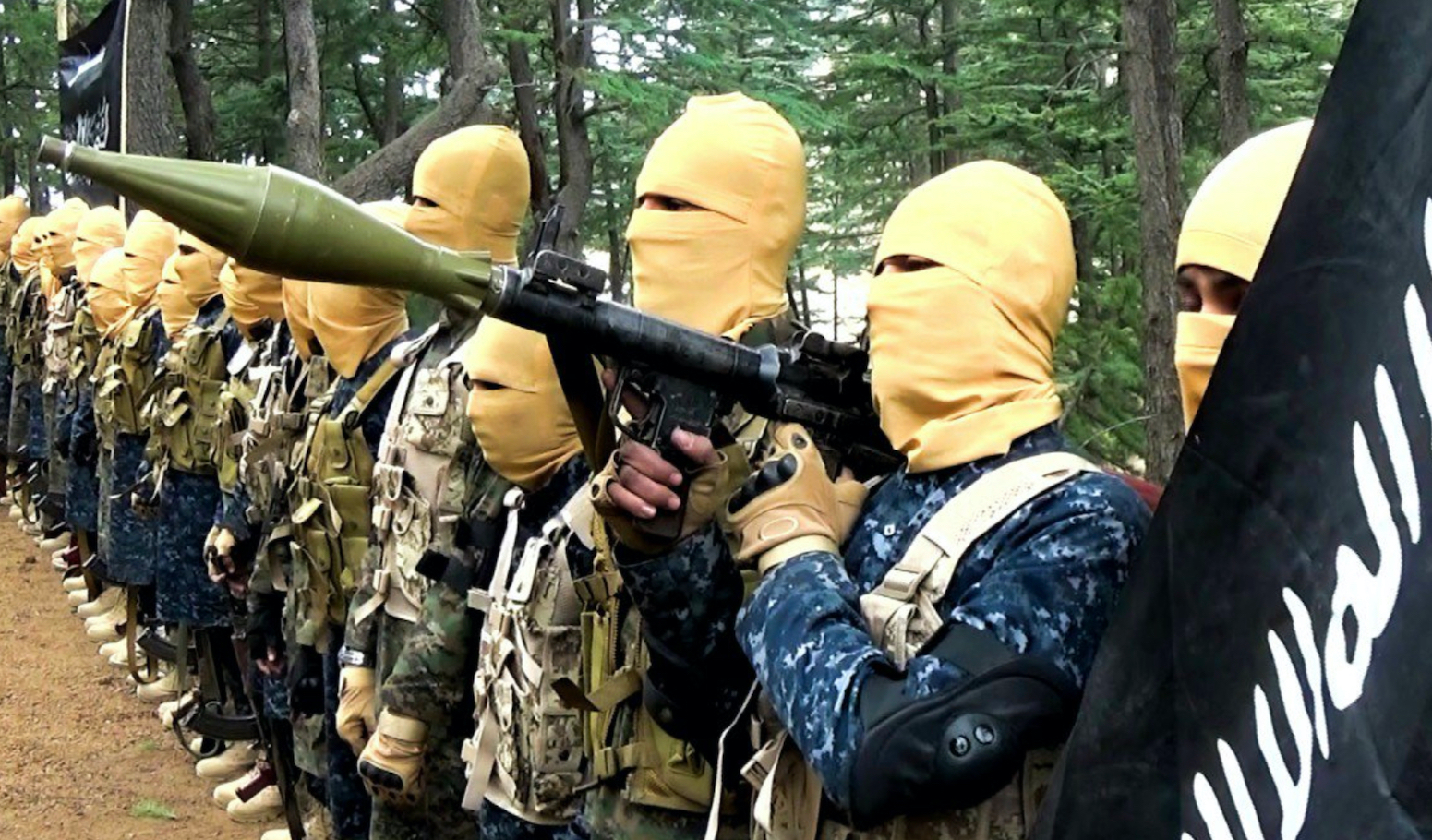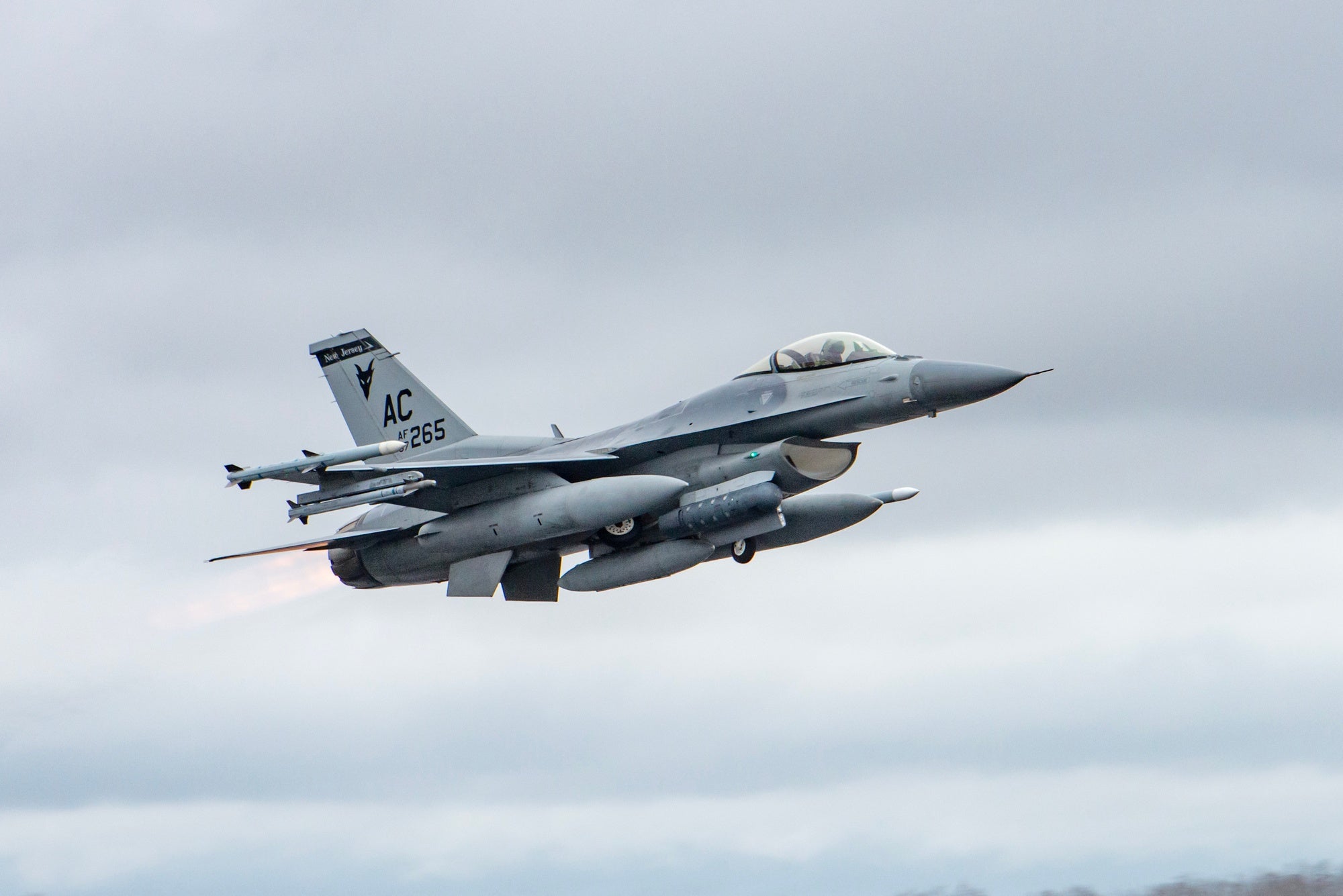
Israel shifts to deadlier strikes on Iran-linked targets in Syria
PHOTO CAPTION: A member of Hezbollah mourns as he lies on top of the coffin of Hezbollah member Jaafar Serhan, who was killed while deployed in Syria with Hezbollah, during his funeral in Mashghara, Lebanon November 13, 2023. REUTERS/Aziz Taher
By Laila Bassam, Suleiman Al-Khalidi and Maya Gebeily
BEIRUT/AMMAN (Reuters) - Israel is carrying out an unprecedented wave of deadly strikes in Syria targeting cargo trucks, infrastructure and people involved in Iran's weapons lifeline to its proxies in the region, six sources with direct knowledge of the matter told Reuters.
The sources, including a Syrian military intelligence officer and a commander in the regional alliance backing Damascus, said Israel had shifted strategies following the Oct. 7 rampage by Hamas fighters into Israeli territory and the ensuing Israeli bombing campaigns in Gaza and Lebanon.
Although Israel has struck Iran-linked targets in Syria for years, including areas where Lebanese armed group Hezbollah has been active, it is now unleashing deadlier, more frequent air raids against Iranian arms transfers and air defence systems in Syria, the sources said.
The commander in the regional alliance and two additional sources familiar with Hezbollah's thinking said Israel had abandoned the unspoken "rules of the game" that previously characterised its strikes in Syria, and seemed "no longer cautious" about inflicting heavy casualties on Hezbollah there.
"They used to fire warning shots - they'd hit near the truck, our guys would get out of the truck, and then they'd hit the truck," the commander said, describing Israeli raids on arms transfers handled by Hezbollah before Oct. 7.
"Now that's over. Israel is now unleashing deadlier, more frequent air raids against Iranian arms transfers and air defence systems in Syria. They bomb everyone directly. They bomb to kill."
The intensified air campaign has killed 19 Hezbollah members in Syria in three months - more than twice the rest of 2023 combined, according to a Reuters count. More than 130 Hezbollah fighters have also been killed by Israeli shelling of southern Lebanon in the same period.
The Israeli military did not respond to questions from Reuters about its escalating campaign. A senior Israeli official, briefing journalists on condition of anonymity, said Hezbollah had initiated this round of fighting with attacks on Oct. 8, and that Israel's strategy was one of retaliation.
Asked last month about a reported Israeli strike in Syria, Israel's military chief said Israeli forces work throughout the region and take "whatever action necessary" to show Israel's determination to defend itself.
IRANIAN FORCES KILLED
Israel began striking Iran-linked targets in Syria years ago, but sources familiar with the strikes said it had appeared to avoid killing Hezbollah members if it could.
A regional intelligence officer said Israel feared a high casualty figure would prompt a retaliation from Hezbollah in Lebanon against Israeli villages just across the border.
But with exchanges of fire now taking place on a daily basis following the Oct. 7 attack, Israel is willing to be "less cautious and less restrained in killing Lebanese Hezbollah in Syria," the officer added.
In a televised address on Jan. 5, Hezbollah head Sayyed Hassan Nasrallah said the group had lost "a number of fighters in Israeli shelling in Syria in several places in the last three months."
"We had a formula before the (Oct. 7) Aqsa Flood operation - if they killed any of our brothers in Syria, we would respond on the Lebanon front - which was calm. Practically, this formula's conditions have changed - why? Because the whole front is lit up now," he said.
An Israeli drone strike on Dec. 8 killed three Hezbollah fighters planning possible operations in northern Israel, and another strike on Quneitra in southern Syria targeted two Hezbollah fighters responsible for weapons transfers, the commander in the pro-Syrian alliance said.
Four more were killed in late December in a strike on buildings and trucks being used by Iran-aligned militia groups along Syria's eastern border with Iraq.
The strikes have also hit Iranian Revolutionary Guards in Syria. One in early December killed two Guards members, and another on Dec. 25 killed a senior adviser to the Guards who was overseeing military coordination between Syria and Iran.
"He would never have been killed before the new reality that came into force after Oct. 7," said one source familiar with Hezbollah's thinking and operations in Syria.
THREAT TO ASSAD
Others have hit infrastructure in southern Syria: one air defence base was struck on Dec. 28 after an anti-aircraft defence system was also hit.
The Syrian intelligence officer said the strikes were hitting defensive equipment even before troops could install it. The airports in Syria's capital Damascus and northern Aleppo, which Iran has used to transfer arms, have been rendered almost continually out of service by strikes.
"Israel is telling (Syrian President Bashar) al-Assad: you are allowing Iranians and Hezbollah to transfer weapons and entrench themselves - so we will disrupt your lifeline and you will find yourself in a tight spot," the regional intelligence source said.
Israel has repeatedly said it does not seek a second war front in Lebanon or Syria.
Despite the intensification, the Syrian military - which leaned heavily on both Hezbollah and Iran while fighting rebels during its civil war - has not opened its own front.
"We don't want to put ourselves in a state of confrontation or open war with Israel," the Syrian intelligence officer said.
Assad himself was discouraged from taking any action in support of Hamas after he received threats by Israel, three sources with direct knowledge of the threat told Reuters.
Two of the sources said the threats of retaliation by Israel were delivered by the United Arab Emirates. A UAE official said such assertions were "baseless and unfounded." There was no response from Syria's information ministry to a request from Reuters for comment on the allegations.
The third source said the message resonated with Hezbollah.
"Hezbollah took that threat seriously as it would have cost them everything they had built in Syria in recent years," he said.
(Reporting by Suleiman al-Khalidi, Laila Bassam and Maya Gebeily; additional reporting by Dan Williams in Jerusalem; Writing by Maya Gebeily, Editing by Timothy Heritage)









